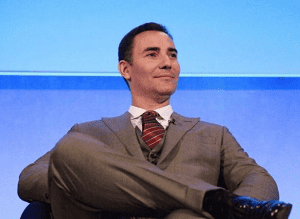Quintessential Capital Management Managing Partner Gabriel Grego explains why his much-maligned “short activism” is good for investors and markets.

Global Finance: How would you describe your firm’s “short activism” strategy?
Gabriel Grego: It basically means looking for a fight with a company that’s either committing a total fraud or where the management team is breaking the law and committing serious crimes that are hidden from the market. We look for opportunities where there is a suspicion that the company is misbehaving and analyze it, sometimes for several months, until we extract a critical mass of information that can prove our thesis or prove that the company is misbehaving. We then publish our findings suddenly and as loudly as possible to collapse the company’s share price and start a chain reaction that typically brings regulators and legal authorities to the table.
GF: Do you consider activist-shorting to be a moral strategy?
Grego: Its beauty is that it eliminates bad apples from the market and establishes deterrents to those who want to be bad apples. Next time, they will have to think twice about the risks they could face. One day, out of the blue, we could show up and try to put an end to them.
GF: How do you find likely candidates for the strategy?
Grego: We have a network of people and friendly funds, and are continuously scanning the media and other sources for cases where a company might be hiding and doing something illegal. We look very carefully every time there is a very hot industry like bitcoin, cannabis or companies claiming to be curing Covid-19. Any time there is an industry with all that euphoria, it usually attracts bad people and fraud.
GF: Once Quintessential identifies a potential opportunity, what comes next?
Grego: First, we do due diligence, which is everything we can do from in front of a computer, such as listening to past conference calls with management and checking legal databases and archives. If we find something interesting, we invest in “deep due diligence,” which consists of an in-depth investigation and undercover fieldwork to unearth the company’s skeletons. We look at thousands of companies quarterly, but manage only a couple of campaigns per year.
GF: Once the fund is happy with what it has found, what is its next step?
Grego: The final part is publishing our findings and battling with the company’s management. It usually ends up being very confrontational.
GF: What success has Quintessential had thus far?
Grego: Of all the campaigns we have conducted against companies that we believed were fraudulent, we have put four companies entirely out of business, and another four have been injured severely. In all cases, every time we said anything against a company, its board has kicked out the management, which the authorities later prosecuted. In one case, they are serving jail time right now.
GF: Do you have any advice for investors who are considering adopting the strategy?
Grego: You have to be a bit crazy because it elicits a lot of hostility from almost everybody—the shareholders and even the regulators. Until you prove yourself right, you make the regulators look like idiots, which is unfair since they cannot prevent every fraudulent company from going public. It is impossible to do since there are too many companies. Regulators are there to clean up after somebody shows them the truth. In some countries, they do not like us because of that. But in the US and other countries, the regulators actually do like us.
GF: Will AI or other tech make the strategy obsolete?
Grego: This cannot be made obsolete by technology. A lot of investment management is being replaced with quantitative and algorithmic trading, but this is based on real old-fashioned detective work, which is difficult to outsource entirely to a computer.
GF: Have recent short-selling bans around the globe hampered you in executing your strategy?
Grego: It has not affected it very much. We weren’t looking at any companies affected by the short-selling bans. The Covid-19 crisis has made it difficult, but not impossible, to travel and investigate.



